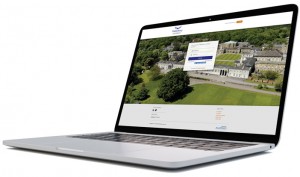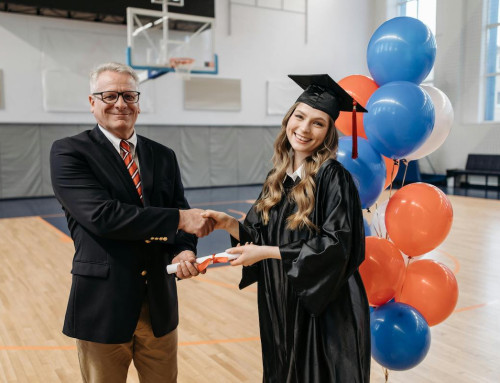In my previous post, dramatically entitled Death by Disruption and Alumni Relations’ Secret Weapon, I looked at how a focus on the customer experience is disrupting the commercial world and what we can learn from it as alumni relations and advancement professionals.
With alumni populations rapidly growing, there is an increased recognition that a robust programme to develop sustainable communities is essential to the future success of institutions.
There are very clear reasons for this, one major factor being fundraising. Annual donations to UK universities passed the £1 billion mark for the first time in 2017 and continue to rise. This number is dwarfed by our counterparts across the pond where giving in 2018 increased by 7.2% to 40.3 billion dollars.
Peter Lock, Alumni Relations Officer at Bournemouth University, told Red Brick research: “Creating an engaged alumni network is beneficial for us because engaged graduates are much more likely to want to “give back” to the University; that could be, for example, by coming back and sharing their experiences with prospective and current students – there are no better ambassadors for your university than your alumni!”
So, how do we maintain close relationships with our growing alumni community and extract value for all stakeholders?
Keeping it personal
As I mentioned in my previous article, institutions hold a special place in the hearts of Alumni, and you have the distinct advantage of having trust on your side when asking for attention. The time spent in education is something that we remember for life, and the vast majority of alumni welcome communications from their alma mater. Decades after leaving, I still welcome the newsletter with updates and enjoy reading about what my former classmates are up to. I also review upcoming events I might wish to attend as real-life person-to-person interaction is what I value most.
For institutions, keeping contact information updated is clearly one key aspect of staying in touch.
Another more complex challenge is to ensure communications are personalised and relevant by having an understanding of the current professional and personal interests of alumni. Alumni means, interests and judgment about the relevance of their alma mater is constantly changing. As a consequence, institutions are having to think ever more strategically to extract the benefits and opportunities that will engage their largest and most enduring constituency.
 The value of a network
The value of a network
For alumni, a high-performing connections programme provides key business contacts and opportunities for career progression through a network of inspirational alumni successes, many of whom will volunteer as mentors.
For students, this connection network can lead to work experience, professional networking, and mentoring opportunities that will help them get started with their careers. Engaged alumni also play a key role as ambassadors for an institution, helping students make an informed choice when it comes to selecting their university and specialism.
For institutions, these relationships are vital to future success in terms of fundraising, legacy, and carrying forward their social mission.
So, it is clear that both on a personal and professional level, alumni networks remain extremely valuable to all stakeholders. The challenge is how to ensure that we communicate meaningfully at scale in order to extract value from our networks.
Facilitating meaningful connections
An important aspect of any well-run alumni association is the evolution from simply a ‘provider of information’ to one which forms a genuine relationship that stays with each alumnus for life.
With tens or even hundreds of thousands of alumni on the books, and the number growing year-on-year, it is a tall order for even the best-staffed alumni relations office to personally relate to the majority of their membership.
There are now ways to achieve this using modern technologies and solutions to become a Facilitator of Connection, allowing your community to engage with one another through a peer-to-peer network. This allows students and alumni to appreciate the continued value of their shared educational experience and thus keeps the relationship with their alma mater warm.
This is the concept of disintermediation; taking us away from traditional, institution-centric networking toward decentralized communication. This concept has already changed the way schools, colleges and universities are engaging with their alumni, and it continues to shape that relationship as institutions adjust.
Technology has a big role to play in this change and presents cost-effective opportunities to scale these relationships using communication channels and platforms.
 Technology to build connections at scale
Technology to build connections at scale
With limited resources and a growing alumni population, increasing engagement can seem a daunting prospect. Social media platforms such as Twitter, Facebook and Linkedin provide solutions for people to stay in touch and even form interest related groups. However, they do have drawbacks. For institutions, these platforms offer limited customisation and autonomy, leading to reduced brand exposure, reputational risk and zero ownership. Additionally, increasing concerns over privacy and misuse of personal data are scaring away an increasing number of users as evidenced by Facebook’s US user base declining by 15 million since 2017.
The solution to this is building your own private, high-trust online space as most of the leading institutions worldwide are beginning to do. This is entirely feasible and is a clever way of creating the right environment for your worldwide alumni community to connect directly.
Over the last decade, the choice of platforms has increased dramatically, although they vary in terms of quality, functionality and flexibility. Our platform, Aluminate Community Builder, is one of the pioneers in this space and is trusted by a third of the UK’s top universities. Aluminate Community Builder has been developed in partnership with institutions to meet the increasing resources and sophistication required of alumni functions and is today recognised as the most flexible and reliable management platform available.
Once built, a high-quality online platform can be run very efficiently, providing a global community that year-on-year helps meet strategic goals including reputational enhancement, student recruitment, improving career destinations, university placement successes and support of fundraising efforts.
This January I will be unveiling the latest version of Aluminate. Sign up for the launch webinar on the 22nd of January to find out why Aluminate Community Builder is the last community platform you will ever need.
Daniel Watts, Managing Director
Aluminati Network Group
I hope that this has been a useful read, do get in touch if you have any questions or suggestions. If you would like to find out how we can help improve alumni engagement please get in touch.






